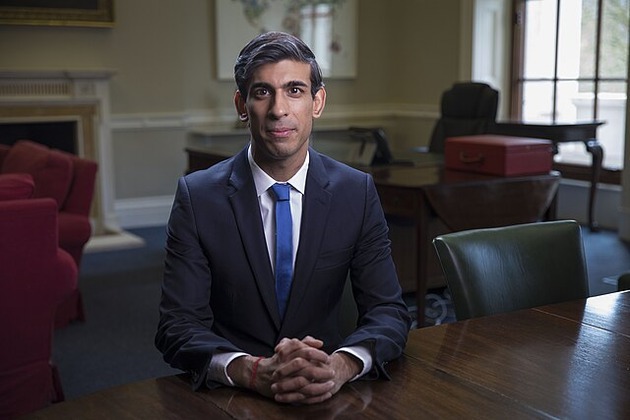Information Overload Is Draining Your Brain! Is It Hurting Our Mental Health?
Merxwire
11 Jul 2025, 15:21 GMT+10
Complex designs and constantly updated algorithms make it increasingly difficult for individuals to control the flow of information actively. Being in such an environment for a long time will not only reduce efficiency but may also diminish creativity and increase psychological stress.

MIAMI, FL (MERXWIRE) - Endless scrolling through social media, news feeds, and messages has become a daily routine for many. But when your mind feels foggy, your emotions swing unpredictably, or your memory begins to fail, it's not just fatigue or stress-you may be experiencing information overload.
Information overload refers to a state in which the volume of incoming information exceeds the brain's ability to process it effectively within a given timeframe. First introduced by futurist Alvin Toffler in his 1970 book Future Shock, the concept has become even more relevant in today's digital world. Unlike a hard drive, the human brain can only actively hold about four to seven items in working memory at a time. Once overwhelmed, the brain may become fatigued, confused, or even shut down unnecessary inputs as a defence mechanism.
Children today are exposed to vast amounts of information, most of which is unrelated to learning. This barrage of fragmented, repetitive content can diminish their brain's natural ability to filter and prioritize. Over time, it may lead to habitual reliance on irrelevant input.
Adults aren't immune, either. Constant notifications, emails, and short videos reduce our capacity to focus, slow decision-making, and disrupt emotional balance and sleep quality. Experts emphasize that this isn't due to a lack of willpower-it's a cognitive strain we're not biologically equipped to manage.
A GlobeScan global survey reinforces this point. Nearly 78% of respondents across all regions and demographics agreed that "the world is changing too fast for me." This reflects a broad sense of anxiety in the face of today's rapidly shifting, high-pressure environment, where the overwhelming pace of information is a significant stress factor.
Information fatigue is further intensified by the design of digital environments. User experience researchers have noted that overly complex interfaces and infinite scroll features can reduce users' ability to self-regulate their consumption. Studies from the Finnish Institute of Occupational Health also suggest that prolonged exposure to information overload lowers productivity, drains creativity, and may increase the risk of psychological disorders.
Fortunately, information overload can be managed. Experts recommend starting with simple steps, such as setting aside "no-device" time daily, consuming only value-added content, and avoiding multitasking. Writing down or verbalising key points also helps the brain process new information effectively, rather than storing a mess of unprocessed data.
It is equally important to teach young people how to assess and filter information. Limiting screen time isn't enough-they must learn to recognise which content is significant. Developing this kind of information literacy will be a vital life skill in the years ahead.

Information, in itself, isn't harmful. The problem lies in how we relate to it. In a world saturated with alerts, recommendations, and push notifications, what we need isn't faster access but more intelligent filtering. Give your brain some breathing room, and you may find your thoughts-and life-regaining clarity.
 Share
Share
 Tweet
Tweet
 Share
Share
 Flip
Flip
 Email
Email
Watch latest videos
Subscribe and Follow
Get a daily dose of Pennsylvania Sun news through our daily email, its complimentary and keeps you fully up to date with world and business news as well.
News RELEASES
Publish news of your business, community or sports group, personnel appointments, major event and more by submitting a news release to Pennsylvania Sun.
More InformationBusiness
SectionMusk’s X loses CEO Linda Yaccarino amid AI backlash, ad woes
BASTROP, Texas: In a surprising turn at Elon Musk's X platform, CEO Linda Yaccarino announced she is stepping down, just months after...
Ex-UK PM Sunak takes advisory role at Goldman Sachs
NEW YORK CITY, New York: Former British prime minister Rishi Sunak will return to Goldman Sachs in an advisory role, the Wall Street...
Gold ETF inflows hit 5-year high as tariffs drive safe-haven bets
LONDON, U.K.: Physically backed gold exchange-traded funds recorded their most significant semi-annual inflow since the first half...
PwC: Copper shortages may disrupt 32 percent of chip output by 2035
AMSTERDAM, Netherlands: Some 32 percent of global semiconductor production could face climate change-related copper supply disruptions...
U.S. stocks recover after Trump-tariffs-induced slump
NEW YORK, New York - U.S. stocks rebounded Tuesday with all the major indices gaining ground. Markets in the UK, Europe and Canada...
Stocks slide as Trump unveils 25% tariffs on Japan, S. Korea
NEW YORK CITY, New York: Financial markets kicked off the week on a cautious note as President Donald Trump rolled out a fresh round...
Business
SectionMusk’s X loses CEO Linda Yaccarino amid AI backlash, ad woes
BASTROP, Texas: In a surprising turn at Elon Musk's X platform, CEO Linda Yaccarino announced she is stepping down, just months after...
Ex-UK PM Sunak takes advisory role at Goldman Sachs
NEW YORK CITY, New York: Former British prime minister Rishi Sunak will return to Goldman Sachs in an advisory role, the Wall Street...
Gold ETF inflows hit 5-year high as tariffs drive safe-haven bets
LONDON, U.K.: Physically backed gold exchange-traded funds recorded their most significant semi-annual inflow since the first half...
PwC: Copper shortages may disrupt 32 percent of chip output by 2035
AMSTERDAM, Netherlands: Some 32 percent of global semiconductor production could face climate change-related copper supply disruptions...
U.S. stocks recover after Trump-tariffs-induced slump
NEW YORK, New York - U.S. stocks rebounded Tuesday with all the major indices gaining ground. Markets in the UK, Europe and Canada...
Stocks slide as Trump unveils 25% tariffs on Japan, S. Korea
NEW YORK CITY, New York: Financial markets kicked off the week on a cautious note as President Donald Trump rolled out a fresh round...







